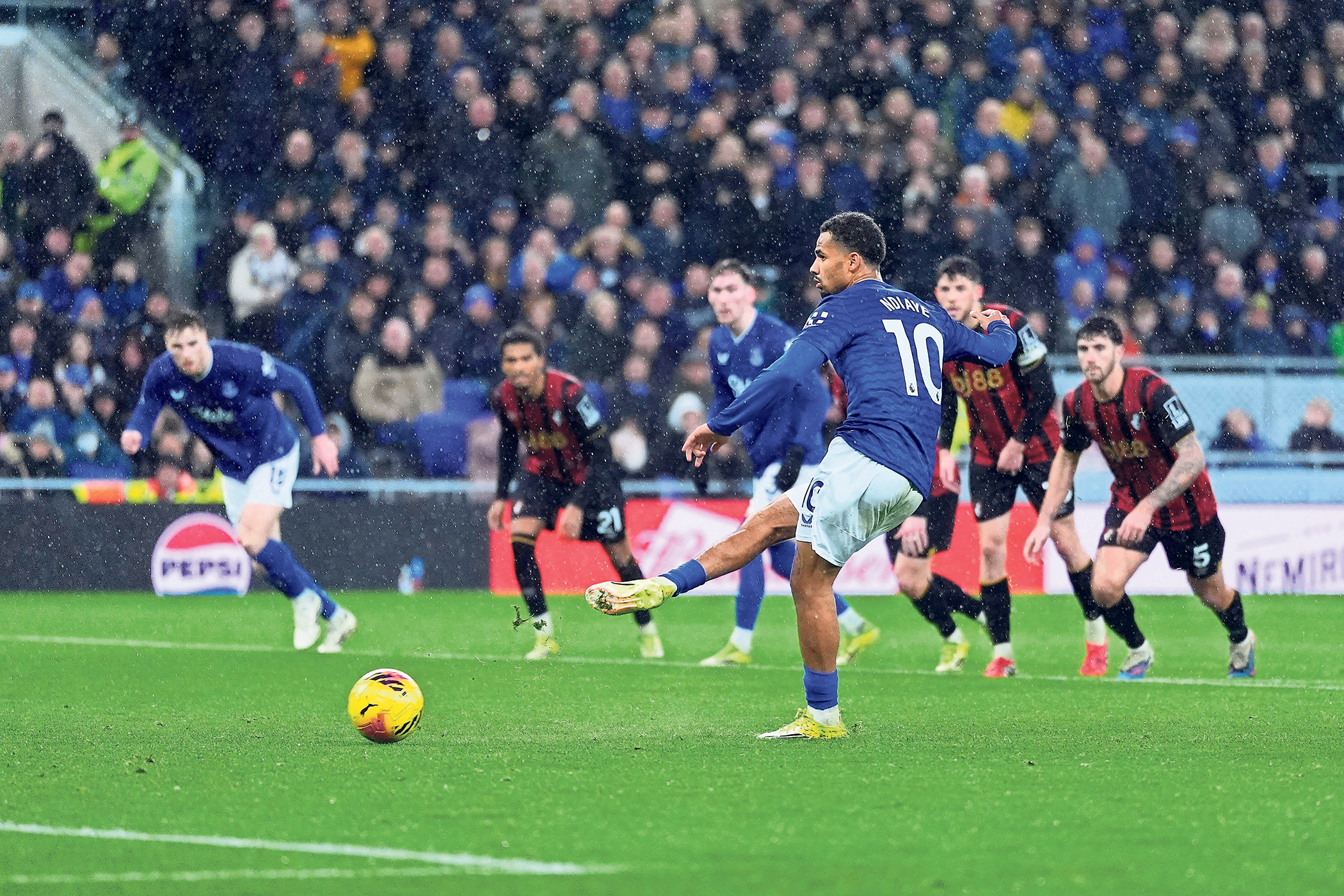Earlier this week Jordan Henderson called Jude Bellingham “a world-class player and world-class person”, which feels about right. Here is a thoroughly elite human, engineered for excellence, 12st of talent and charm bound together by pure muscle and cheekbone, the High Performance Podcast made flesh. “I’m just Jude,” he said while at Borussia Dortmund. “I don’t see myself as some sort of special person because I play professional football. I’m no better than anyone else just because I can kick a ball around.”
Yet you still suspect that somewhere buried in an airlocked vault is a video of a six-week old Bellingham, muscles already rippling through his babygrow, doing endless keepy-ups with a ping pong ball while glowing faintly green. He is, by a wide variety of definitions, better than anyone else, and well aware of it. Perhaps only Wayne Rooney had the same combination of ability and confidence at any age, uniquely capable of directing their talent to a specific moment, behind a specific cause. It is not impossible that England could win a World Cup without Bellingham, but it would be significantly less likely and more difficult, attempting to navigate a format entirely defined by moments without perhaps the great moments player of his generation. More than anything, he is a major tournament footballer.
For the next decade or more, English men’s football will inescapably be forced through a Bellingham lens, obscured by a Bellingham shadow, as it was reminded in victory over Wales. You can start Morgan Rogers all you like, but the headlines will still reference a man who is not even in the country. The ultimatum is that you can only have him on the condition that you have all of him, all the time, an endless Bellingham discourse loop, every player a potential Bellingham team-mate or usurper, every game defined by his selection or absence. Thomas Tuchel had a reasonable excuse for not calling him up against Wales and Latvia – he is yet to play 90 minutes for Real Madrid since returning from injury – but you imagine he will not be so fortunate by the next camp. There are suggestions Bellingham has been left out to protect squad harmony, but ignoring rather than facing this issue feels not so much counter-intuitive as wrong.
"Do I believe we are a stronger team with Jude? Yes," Tuchel said before the Wales game. "Is he one of the best players in the world in midfield? Yes. But I told you last time when he was injured: what will we do if a player like Jude is injured before the World Cup? Do we then cancel? Do we not travel?
"This is a team sport. Everyone has a particular role and it can happen right in front of the tournament and then we have to find solutions. It can never be the solution to depend on one player in football."
Tuchel is beginning to understand the highwire act of placating the Bellingham industrial complex, not just Jude but his father too, with reports of Mark Bellingham’s vituperative treatment of dissenting voices. Do not, under any circumstances, call their sweet little prince “repulsive”. Drop him if you have a sufficient excuse, but not otherwise. Do not make him do any media appearances – that’s what the endless stage-managed documentaries are for. And do not kid yourself that Rogers, however well he played against Wales or however talented he is, is a like-for-like replacement when you need to beat Spain or France or Argentina.
Much of the discourse around Bellingham also applies to Trent Alexander-Arnold, something of a spiritual partner and close friend, one of the few other truly singular English footballers. The only time Alexander-Arnold has started four consecutive matches for England was under Lee Carsley a year ago, and, at 27, half of his 26 international starts came before 2022. Injury ruled him out of two of the four Tuchel camps, but he has played just 26 minutes of the other four matches, and wasn’t selected in September.
There was a bizarre glee at Alexander-Arnold’s absence then, as there was with Bellingham’s this week. For Steven Gerrard’s lament that his generation’s failure was being “egotistical losers”, Alexander-Arnold and Bellingham are egotistical winners, aware of their value and willing to advocate for themselves, sometimes to a fault. They are considered too polished and talented and charming, suspiciously confident and suspiciously black, victims of a sporting establishment that quietly wishes everyone was Joe Root or Harry Kane, unflinchingly reliable and inconspicuously extraordinary, Beef Wellington athletes, beta males doing alpha stuff.
Tuchel is selecting from the most talented group of English footballers ever, with so few weaknesses that he has largely been able to remodel how we understand international selection, closer to curating a club side than ever before. He can prioritise two Proper Wingers, pair Declan Rice and Elliott Anderson, promote a fixed tactical system which is the priority in itself. The result is having to tell Bellingham, Cole Palmer, Rogers and Phil Foden that there will be space for only one of them to start next summer, spending the next eight months playing a perverse game of snog/marry/avoid between four of the most gifted English players. This decision might not actually define his tenure but will define the narrative, inevitably be the perceived cause of England’s glorious victory/miserable failure.
Bellingham and Alexander-Arnold are the obvious stress points for a system which already feels oddly settled long before it needs to be, vibe-shifting attention magnets but also unique footballers. It is suggested Jordan Henderson is around the squad partly to act as a Jude sponge, a player Bellingham listens to and can help balance and assimilate him, humanise a player who can need it both personally and professionally.
Newsletters
Choose the newsletters you want to receive
View more
For information about how The Observer protects your data, read our Privacy Policy
If Rogers is a fair indication of what Tuchel wants from a No10, then Palmer is perhaps the more obvious starting figure, the only similarly singular virtuoso who could legitimately challenge Bellingham’s starting place, with Foden still a class below, especially on the basis of his international career.
And yet Palmer is not just competing against Bellingham, but against the noise, the vibe, the Real Madridness of it all, the innate superstardom and self-promotion and bravura, the promise and the moments. This is not just a world-class player. How do you handle a world-class person?
Photograph by Kevin C Cox/Getty Images



